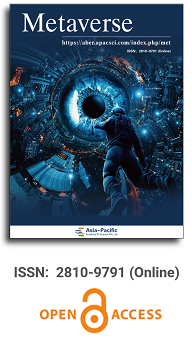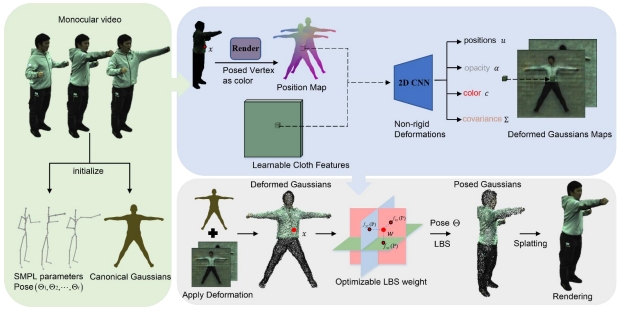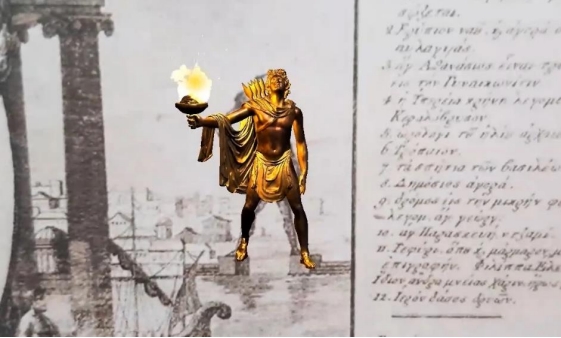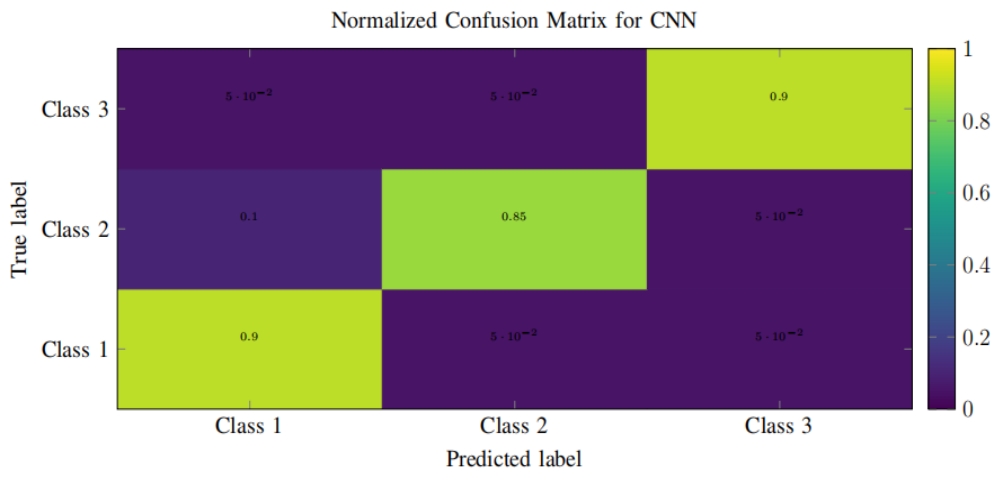
Asia Pacific Academy of Science Pte. Ltd. (APACSCI) specializes in international journal publishing. APACSCI adopts the open access publishing model and provides an important communication bridge for academic groups whose interest fields include engineering, technology, medicine, computer, mathematics, agriculture and forestry, and environment.



Issue release: 31 December, 2021
The widespread use of artificial intelligence (AI) has caused a discussion wave of possible ethical, ontological, and legal problems.
Issue release: 31 December, 2021
Augmented reality is a concept that includes virtual reality, augmented reality and hybrid reality. It has made remarkable progress in recent years and has a great impact on understanding education. Based on two key concepts: immersion and existence, the study of extended reality is helpful to improve teaching. However, these contributions need to be reviewed on a key theoretical basis to avoid falling into technophobia without scientific evidence. The purpose of this article is to understand and evaluate the contribution of a wide range of realities to education and the educational challenges faced before the development of Metaverse. To the end, RST defines each type of reality and critically evaluates their application in the field of education. Second, it puts forward critical arguments on the advantages and disadvantages of these technologies in educational practice. Third, it describes the challenges faced by Metaverse in education. This analysis shows that augmented reality contributes to the innovative development and improvement of the teaching process, despite the lack of teacher training to design the learning experience according to augmented reality, and the lack of interdisciplinary cooperation in technology and education. These results have affected the development of Metaverse, which is another step in expanding the evolution of reality and will have a significant impact on the field of education. The survey results show that it is necessary to design an ethics code, develop a culture and protect the identity of users.
Issue release: 31 December, 2021
Metaverse is a word of great concern in the second half of 2021. What is Metaverse, what is its technical essence and what kind of philosophical significance? These problems are not clear at present. In terms of connotation, the Metaverse is a broader space formed by the integration of the natural universe and the virtual universe. In the future, human beings will walk freely between the natural universe and the virtual universe. From the technical perspective, Metaverse is a general term for the comprehensive integration of information space-time formed by a series of new information technologies such as Internet, big data, artificial intelligence and blockchainfrom the perspective of philosophical essence, the Metaverse gives full play to people’s subjective initiative, so that people can use the world’s data and information to reconstruct a virtual new universe, surpass various natural and social constraints of the natural universe and carry out free ideological innovation. People can even become a new “creator”, resulting in new cosmology, body and mind, creation, cognition and ethics
Issue release: 31 December, 2021
Many studies focus on only one aspect while placing objects in virtual reality environment, such as efficiency, accuracy or interactivity. However, striking a balance between these aspects and taking into account multiple indicators is important as it is the key to improving user experience. Therefore, this paper proposes an efficient and interactive object placement method for recognizing controller trajectory in virtual reality environment. For creating user-friendly feedback, we visualize the intersection of the ray and the scene by linking the controller motion information and the ray. The trajectory is abstracted as point-clouds for matching, and the corresponding object is instantiated at the center of the trajectory. To verify the interactive performance and user satisfaction with this method, we carry out a study on user experience. The results show that both the efficiency and interaction interest are improved by applying our new method, which provides a good idea for the interactive design of virtual reality layout applications.
Issue release: 31 December, 2021
In 2021, the rapid rise of the Metaverse caused a lot of cultural and humanistic concerns. Some people believe that the Metaverse challenged the humanistic connotation of existing culture and caused humanistic rupture. This concern is not unreasonable, but there are also misunderstandings. The connotation of humanity should be defined as various aspects of humanity, that is, humanity should not be regarded as a whole, but as various aspects with both fluidity and imbalance. From the existing technology-based culture to the meta cosmic culture, the humanities have changed successively, forming a form of topological change. All aspects of humanity always present themselves in challenges and changes, and there is no rigid solidification of the whole of humanity. The Metaverse will shape new humanistic values and connotations. It is not an involution of human self-consumption. Therefore, the “rupture” of the humanistic aspects of the Metaverse is not a fact, but an idea imagination. The “Reconstruction” of the humanistic aspects is a form of the combination of fact promotion and the elimination of misleading ideas, and its mechanism is a topological migration.
Issue release: 31 December, 2021
In the 21st century, artificial intelligence is constituted as a force that in many ways surpasses fiction, because in a certain way it is already present in all areas of social life, from internet search engines to determine tastes and preferences in accessing digital information, to intelligent refrigerators capable of issuing purchase orders to maintain the availability of certain foods as they run out. The aim of this essay is to analyze the possible ethical, ontological and legal issues arising from the widespread use of artificial intelligence in today’s societies, as a preliminary attempt to resolve the question posed in the title. Methodologically, it is an essay developed using written documentary sources, such as: Literary works, international press articles and refereed articles published in scientific journals. It is concluded, that AI have the potential to disrupt the lifestyles of civilization in general in many ways reaching, even, to alter the human condition in a negative way by changing its identity and genetic integrity and weakening the protagonist of people in the construction of their own realities.
Issue release: 31 December, 2021
The adoption of the Common National Curricular Base and the New High School Law necessitates a cultural shift in basic education, with a focus on skill and competency development. Considering this, the purpose of this study was to research in the literature the contributions of immersive environments as an educational tool for competency-based teaching. Articles from the CAPES database and the key journals dealing with information technology in education in Brazil were collected using an integrated literature review. The articles examined provided several techniques for leveraging immersive settings in teaching, such as “virtual worlds”. It was discovered that innovative proposals have the potential to develop competencies and skills.

Prof. Zhigeng Pan
Professor, Hangzhou International Innovation Institute (H3I), Beihang University, China

Prof. Jianrong Tan
Academician, Chinese Academy of Engineering, China
Conference Time
December 15-18, 2025
Conference Venue
Hong Kong Convention and Exhibition Center (HKCEC)
...
Metaverse Scientist Forum No.3 was successfully held on April 22, 2025, from 19:00 to 20:30 (Beijing Time)...
We received the Scopus notification on April 19th, confirming that the journal has been successfully indexed by Scopus...
We are pleased to announce that we have updated the requirements for manuscript figures in the submission guidelines. Manuscripts submitted after April 15, 2025 are required to strictly adhere to the change. These updates are aimed at ensuring the highest quality of visual content in our publications and enhancing the overall readability and impact of your research. For more details, please find it in sumissions...


 Open Access
Open Access




.jpg)
.jpg)

